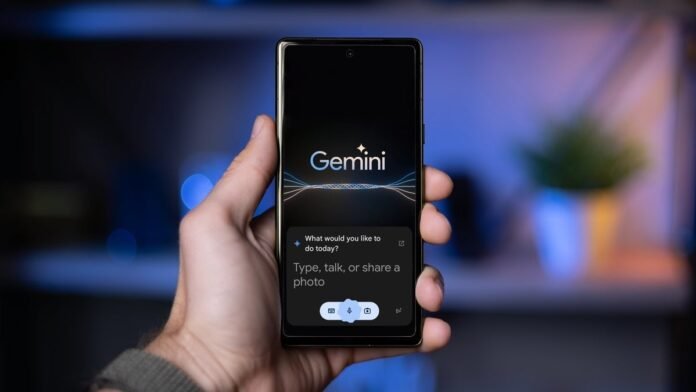The era of Google Assistant is coming to an end. Google has officially announced the Google Assistant shutdown, confirming that the popular AI assistant will be replaced by Gemini AI in the coming months. This shift marks a major change in Google’s AI strategy, as the company transitions from its long-standing voice assistant to a generative AI-powered solution.
Google Assistant Shutdown Timeline
In a blog post, Google stated that it will begin moving users from Google Assistant to Gemini AI throughout the year, with a full phase-out planned before the end of 2024. This means that Google Assistant will no longer be available on most Android devices, and even iPhone users will lose access to the app through the App Store.
The Google Assistant shutdown applies not only to built-in features on Android devices but also to third-party devices and apps that integrate with Google’s voice assistant. Users will need to transition to Gemini AI, which is expected to take over all of Assistant’s functions while introducing new AI-powered features.
Why Is Google Shutting Down Google Assistant?
Google’s decision to discontinue Google Assistant comes as part of its broader push toward generative AI. Gemini, formerly known as Bard, is a more advanced AI model designed to handle complex queries, perform interactive tasks, and integrate with Google’s ecosystem in ways that surpass the traditional Assistant.
Google has been gradually removing features from Google Assistant for over a year, signaling its eventual demise. The company has been integrating Gemini AI into Android, making it the new default assistant on many devices. Unlike Assistant, which focused primarily on voice commands and smart home control, Gemini AI incorporates deep learning and reasoning models to perform advanced tasks.
How Will This Affect Android Users?
With the Google Assistant shutdown, Android users will experience significant changes:
- Google Assistant will no longer be available on most new devices
- Google Assistant apps on third-party devices will be discontinued
- Voice commands and smart home integrations will shift to Gemini AI
- Older Android devices (Android 9 or lower, with less than 2GB RAM) may not support Gemini AI
Google claims that Gemini AI will provide better functionality than Assistant, incorporating features like real-time reasoning, camera-based object recognition, and deep research capabilities. However, many users have reported that Gemini AI still struggles with basic tasks such as setting reminders, controlling smart home devices, and opening specific apps.
Is Gemini AI a Worthy Replacement?
Google insists that Gemini AI is the future of its digital assistant technology. The AI model continues to receive updates, adding missing features from Google Assistant while introducing new capabilities, such as Gemini Live, which allows users to interact with the AI using their device’s camera.
However, critics argue that Gemini AI is not yet a perfect replacement for Google Assistant, pointing to inconsistent performance and missing essential functionalities. While Google Assistant shutdown is inevitable, users may need time to adjust to Gemini AI’s learning curve.
What’s Next for Google’s AI Strategy?
Google’s shift to Gemini AI signals its commitment to generative AI and advanced machine learning. As Google phases out Google Assistant, users will need to rely on Gemini AI for digital assistant tasks, smart home control, and search assistance.
For those looking for alternatives, other AI assistants like Amazon Alexa and Apple Siri remain viable options. However, with Google betting its future on Gemini AI, it remains to be seen whether this transition will be a smooth upgrade or leave users missing the simplicity of Google Assistant.
The Google Assistant shutdown marks the end of an era, but whether Gemini AI will be an improvement remains to be seen.




